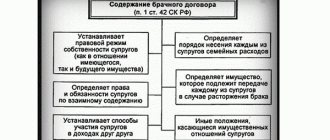Basic rules for transporting money
Don't put all your eggs in one basket - this proverb conveys as accurately as possible the basic rule of transporting money. When considering where to put your money on a trip, identify several options and allocate your capital. If you store everything in one place, then there is a high risk of being left without a penny: if a thief gets his hands on it, he will take all the capital.
In general, if possible, it is better to carry some part by non-cash method. Then, in any case, you will be left with at least some part of the funds. And even if ATMs for withdrawing cash are paid, it’s better than being left with nothing.
Key rules:
- if you carry money in a bag, it should always be with you, in your field of vision;
- It is better not to use backpacks to store funds. Out of sight of the owner, he can become a victim of thieves. Cutting a backpack from the back is much easier;
- Do not take a bag with money with you on public transport. This is where most thefts occur. And if there is such a need for transportation, choose another, more original storage location;
- the closer to the body the money is stored, the more reliable this method is;
- Don’t flash your money, don’t attract thieves. Always have a small amount with you for small payments, keep your main capital separately.
It is not recommended to carry money in luggage. There is a risk of lost or delayed luggage or theft.
Many Russian citizens travel by train, and for them where to keep their money while traveling is extremely important. Sometimes such journeys take several days, and you must always keep your finger on the pulse; theft on trains is not uncommon.
Usually you always have a large travel bag with you. Alternatively, you can put the money at the very bottom, then put the bag in the compartment under the shelf. And be sure to have the “treasure” at the bottom. The risk of theft with this method is minimized.
Terms of division of jointly acquired property of spouses: the concept of limitation
Division of property of former spouses is possible only if a certain period has not passed.
Important! The ex-husband or wife can claim marital property within three years. This is the statute of limitations.
If the designated period has not yet passed, you can safely file for division of jointly acquired property - the court will accept your claim. Although the limitation period begins to count from the moment the plaintiff learned that his rights were being violated. This could be either immediately after the divorce or a year later. Sometimes the procedure can be started while still married if you find out that your spouse is trying to deprive you of your fair share through fraudulent means. The connection between the point in question and the moment of divorce is very conditional
During this time, the property can be divided. In this case, from the moment one of the parties learned of a violation of their rights, the statute of limitations begins to count, for which compensation for damages for improper division of property can be demanded.
How to make a division of property after a divorce if 3 years have passed
Sometimes property has to be divided not immediately after a break in ties, but after several years. If more than three years have passed, you will not be accepted in court (unless you find out about a violation of rights). We will have to negotiate, since the property will be common, without allocating a share in it. If you cannot reach an agreement on your own, the court will do it for you.
How to store money while traveling, advice from people
These are real recommendations from people who, for one reason or another, were forced to transport large sums of cash on trains, buses, planes, and in any type of transport. Perhaps one of these options will suit you:
Where to hide money on a trip to the sea and other places, advice from people:
- Make a belt from gauze or other thin fabric. Wrap a wad of banknotes in it, wrap a belt around your waist and always keep it with you, even in your sleep.
- Women can store money in a bra if it is a snug fit and of sufficient size. The money should first be wrapped in a scarf or gauze.
- As banal and funny as it may seem, many people continue to use the good old method - secret pockets in their underwear.
- In an internal secret pocket or a special separate fastened pocket on a shirt or blouse. Moreover, it must have a zipper.
- If it is not there, you should sew on a button or use a high-quality, thick pin.
- Some recommend exotic methods of transportation, which in general are also not without meaning. For example, you can hide money in a roll of toilet paper (a whole roll), some advise putting cash in a package of feminine hygiene products. Similarly, you can use some kind of dishes, thermoses, and medicine packages.
The main thing is not to draw attention to the method you have chosen. Do not pay too much attention to the item being stored. If a person sits on a train and holds his bag in his hands 24/7, a potential burglar will immediately understand that it is of significant value.
Features of the money and deposits section
As a general rule, any property acquired during marriage, as well as all money earned by spouses, is recognized as jointly acquired property and will be subject to division in the event of divorce.
A similar rule applies to deposits and cash.
Following the letter of the law, the following will be subject to division when any spouse files a corresponding claim:
- Cash held by each spouse.
- Money held in deposits in banks, in deposit accounts, in unallocated metal accounts.
- Cash in the form of savings certificates and other securities to the bearer or to one of the spouses.
- Money invested in consumer and credit cooperatives, microfinance organizations and other financial institutions that accept funds from the population at interest on the basis of loan agreements.
But this is all just in theory. When dividing funds, be it deposits or “cash”, it is possible that a number of problems may arise, which will be extremely difficult to overcome without the help or at least consultation of an experienced lawyer.
If the spouse did not know about the deposit
It does not matter whether the second spouse knows about the deposit or not - if the deposit was opened during the marriage and funds received as income by one of the spouses were deposited into it, then such funds will be subject to division.
Important! To identify all possible deposits when filing a claim for division of property, it is advisable to petition the court to send a judicial request to the banks at the place of residence of the defendant-spouse. You must request information about all open accounts and their balances.
If the account was closed before the divorce
It often happens that at the first sign of a serious family conflict, the spouse who has the deposit begins to “prepare” for the division of property: the account is closed, and the money itself disappears in an unknown direction.
In this case, the partner interested in dividing the deposit will have to prove the existence of this deposit through the court rather long and tediously and seek its recognition as jointly acquired property.
You will have to spend a lot of effort and not confirm the origin of the funds withdrawn by the second spouse
If the case has a positive outcome, which is impossible without the participation of experienced lawyers, it will be possible to oblige the “embezzler” to return 50% of the funds spent (withdrawn from the account).
Are debts divided?
Debt obligations of spouses, according to Article 39 of the RF IC , are distributed between them in proportion to the size of the share. Division of debts upon divorce of spouses is carried out if:
- The borrowed funds were used for the needs of the family. This could be the purchase of shared property, taking out a mortgage on an apartment, etc.;
- the debt arose as a result of a married couple or their child causing material damage to a third party.
During a divorce, the following are not recognized as common debts and are not subject to division:
- borrowed funds used for personal needs;
- debt obligations arose before the official marriage. However, if the money borrowed was invested in common property, then the borrower has the right to claim a larger share of the property;
- The spouse took out a loan during the separation during the divorce. In this case, funds cannot be considered joint property and their division is impossible.
It is worth noting that the total size of the spouse’s share of the property affected affects the share of repayment of the debt. If, during a divorce and division of property and funds, the husband or wife received 2/3 of the jointly acquired property, then debt obligations will be repaid in a similar amount.
Total credit debt
Such debt arises when it is directly related to joint apartments, houses, cars, plots of spouses or their expenses. This includes:
- movable and immovable property purchased during marriage;
- income from labor, intellectual and entrepreneurial activities;
- securities, deposits.
Personal belongings, inheritance and everything that was acquired before the legalization of the relationship will not be taken away from you. However, sometimes in rare cases such items may be considered common when the partner invested his own savings and increased the market value of the item. He may demand his investment back.
Personal
This includes those debts that existed before the legalization of relations, as well as those received for one’s own, non-family needs. To prove that the husband or wife borrowed money was not spent on the family, they are asked to provide income certificates and statements of accounts to confirm their solvency (that is, to show that you did not need these amounts).
In addition, the following debt obligations are considered strictly personalized:
- a service or purchase that was purely personal (dentistry, surgery, telephone);
- business loan;
- compensation for damage.
Most often, such debts are hidden and called “secret”. In judicial practice, it is not uncommon for one of the spouses to not even know about their existence.
Special storage devices
When considering where to hide money on vacation, pay attention to various life hacks invented by various manufacturers for this purpose. If you have already arrived on vacation and we are talking about transferring a small amount, for example, for daily expenses, you can use them. This is relevant if you are just walking or going on some kind of excursion:
- belts with secret pockets that close with a zipper. This kind of wallet is located on its inside;
- hidden pockets on the inside of the garment. There are even separate pockets available for purchase with clasps that are sewn onto clothing during vacation;
- scarves with secret pockets;
- special wallets that are worn on the wrist;
- You can also use just a belt bag, but you must always be on guard, such items attract the attention of thieves. Choose durable models that are difficult to pull off or cut;
- You can even find special shoes on sale, the soles of which contain places for storing money.
So, if you are wondering where to hide your money on a trip abroad, explore the market for modern goods. Suitable devices can be found on Aliexpress; all new products of this type are mainly sold there.
Property of spouses subject to division and considered jointly acquired
Before starting the procedure, you should understand what will be considered common. This is the name given to property that a couple acquired while they were married. Moreover, it does not make much difference what financial contribution each spouse made. Even if only one person works in a couple, everything purchased by him will be considered common. You can read more about this in Art. 34, RF IC.
Almost any financial or material benefit is considered common, including salary, pension and various fees. This applies to luxury items, such as fur coats or jewelry, if they were used exclusively by the spouse.
Sometimes the law may allocate a larger share to one of the spouses, provided that the other did not work without a good reason. But the concept of “disrespectful” is quite narrow and individual in each case. Often, even addiction to alcohol or drugs is not such a reason. Usually the court divides everything in half.
Where to hide money in a hotel?
If you rent a room in a good hotel, there will definitely be a safe, so use it to store funds. If there is no safe in the room or you don’t trust it (suddenly the staff has a second key), use simple hiding places.
We do not recommend storing cash under the mattress, on shelves under clothes, or behind the toilet cistern - these are the places thieves check first. When considering where to store money in a hotel, you can choose baseboards, suspended ceiling tiles, This should be a place that the maid cannot reach.
In what cases will deposits and money not be subject to division?
It is not always possible, even in court, to recognize funds in the form of cash or in bank deposits as jointly acquired property.
Thus, funds will not be subject to division and cannot be recognized as jointly acquired property of spouses in the following cases.
The contract was concluded before the marriage was registered
If the deposit is opened before the official registration of the relationship in the name of either spouse, then the funds on it will not be subject to division.
If, after registering a marriage, funds were deposited into the account from joint savings, then the second spouse has the right to demand recognition of these finances as jointly acquired property and, accordingly, division in equal shares.
Also, if a bank deposit opened before marriage was closed during the marriage, and the funds in the account were transferred to another bank, then the second spouse does not have the right to claim his share in this property - all this money is also considered personal to one of the spouses.
The money was gifted or inherited by the spouse
Inherited property or property received as a gift, including money, cannot be recognized as joint property.
Such money was and remains personal property, regardless of the amount, date of donation (inheritance), financial situation and other factors.
To confirm this fact, the spouse who is not interested in the division must present to the court a certificate of the right to inheritance, account statements and other documents indicating the nature of the origin of the cash deposit in the bank.
The deposit is opened in the name of the child
Funds placed in bank accounts opened in the name of a minor child are not subject to division, regardless of who contributed funds to this account.
Such property will be considered to belong exclusively to the minor in whose name the account is opened.
Taking it into account in whole or in part when dividing jointly acquired property is not permitted under any circumstances.
It's better not to carry a lot of cash
Of course, the best way to avoid theft is not to carry large amounts of cash with you. Now there are financial instruments that allow you to do this without problems. The ideal option is a simple bank card. It is accepted for payment everywhere, and you can also withdraw money anywhere. If you are considering how to store money abroad, you can get a special multi-currency card so as not to spend money on conversion.
If you are unable or unwilling to use a bank card, you can simply send a money transfer in your name. Find out which translation operators work in the country or city you are traveling to. For example, if you are going abroad, Unistream and Western Union will do.
Before your trip, send the transfer to yourself, indicate in which country or city you will receive it, in what currency. The commission is small, usually 1-2% of the transaction amount - in general, a small fee for the safety of capital. Sending to yourself is normal practice, there will be no problems.
Upon arrival, you go to the collection point, the address of which you will find out in advance, and collect the money there. This is a great option if you have a long journey by train or car. After withdrawal, distribute the cash to different places, so storage will be the safest.
about the author
Irina Rusanova - higher education at the International East European University in the direction of "Banking". Graduated with honors from the Russian Economic Institute named after G.V. Plekhanov with a major in Finance and Credit. Ten years of experience in leading Russian banks: Alfa-Bank, Renaissance Credit, Home Credit Bank, Delta Credit, ATB, Svyaznoy (closed). He is an analyst and expert of the Brobank service on banking and financial stability. [email protected]
Is this article useful? Not really
Help us find out how much this article helped you. If something is missing or the information is not accurate, please report it below in the comments or write to us by email
Are bank accounts divided during divorce?
According to civil law, cash and money stored in deposits and accounts are divided according to the same rules as the rest of the property of the spouses.
That is, if the funds in bank accounts were earned during the existence of the marriage, they are distributed equally, in the absence of a concluded agreement on the division of property or a judicial act with a contrary decision.
At the same time, money has its own specifics, since no government agency or notary registers ownership of it (unlike the purchase of a car or real estate).
Cash is indivisible by force, since it is difficult to establish its total amount. If the money is in a bank account, it can be divided fairly between the former spouses.
Funds are subject to division only if the accounts were opened during marriage and cohabitation, if there is evidence of this fact (receipts, agreements, bank account statements, receipts and other documents).
Legal grounds
The law classifies funds, both in cash and in bank accounts, as jointly acquired property (Clause 2 of Article 34 of the Family Code of the Russian Federation). In this case, it does not matter in whose name the account is opened and who specifically deposited money into it during the marriage.
The division of funds in the event of a possible divorce is carried out according to the general principle, in which the shares of the spouses are equal (clause 1 of Article 39 of the Family Code of the Russian Federation).
However, life is not as clear-cut as legal provisions. The cash deposits section has many nuances in practice, the most common of which will be discussed below.
Comments: 0
Your comment (question) If you have questions about this article, you can tell us. Our team consists of only experienced experts and specialists with specialized education. We will try to help you in this topic:
Author of the article Irina Rusanova
Consultant, author Popovich Anna
Financial author Olga Pikhotskaya









